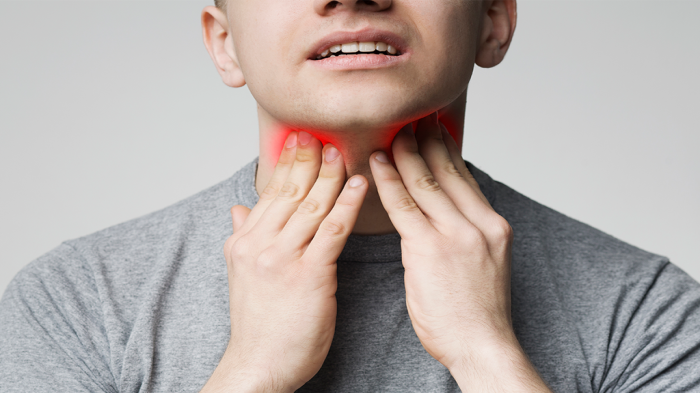In OTC Category Reviews
Follow month by month updates on topics including asthma, mental health and skin conditions and be able to provide informed advice to customers at the counter.Bookmark
Over the last decade, the importance of sex and its relationship to overall health and wellbeing has become widely accepted.
The rise of the #MeToo and TimesUp movements as well as an increase in education surrounding LGBTQ+ relationships, female pleasure and sex work has led to more accepting, sex positive environments, particularly in the Western world.
For many people, sexual wellness has become not only about being free from sexually transmitted infections (STIs) and anything that affects one’s ability to have sex but is now also about having healthy relationships and being able to enjoy sexual activity.
The World Health Organization (WHO) defines sexual health as “a state of physical, emotional, mental and social well-being in relation to sexuality; it is not merely the absence of disease, dysfunction or infirmity. Sexual health requires a positive and respectful approach to sexuality and sexual relationships, as well as the possibility of having pleasurable and safe sexual experiences, free of coercion, discrimination and violence. For sexual health to be attained and maintained, the sexual rights of all persons must be respected, protected and fulfilled.”
A public health issue
According to an article published in The Lancet in June 2021, the WHO’s definition establishes sexual health as an important public health issue but fails to consider that health is seldom – if ever – the main reason why people have sex. Sexual health, sexual wellbeing, sexual justice and sexual pleasure are all interlinked, and sexual wellbeing can be influenced by various factors, including emotions, relationships, physical and mental health, age, gender and sexual orientation.
The terms ‘sexual wellness’ and ‘sexual health’ shouldn’t be used interchangeably, according to Dr Janet Barter, president of the Faculty of Sexual and Reproductive Healthcare. “We tend to use ‘sexual health’ to refer to the absence of disease or problems with sex,” she explains.
“Sexual wellness would be more than that and also includes the enjoyment of sex (alone or with a partner), feeling safe and empowered and having the ability to discuss what an individual does and does not want to do, including the use of contraception and protection.”
“With the advent of the ‘wellness’ industry, this concept has been extended to all aspects of our mental and physical wellbeing,” says Dr Hana Patel, GP specialist in women’s health in Dulwich, South London, and mindset coach. “While WHO has offered its definition, it is personal to each of us as individuals, and we are all on a journey and have different experiences and preferences.”
Furthermore, sex can not only improve relationships, but research shows that regular pleasurable sex may decrease the risk of heart disease, lower blood pressure and improve the immune system. It may even improve sleep, act as a natural method of pain relief and help people’s mental health.
“A healthy sex life has been shown to improve physical and mental health in a number of ways,” says Dr Mark Lawton, consultant in sexual health and HIV and chair of the British Association of Sexual Health and HIV (BASHH) Media Group. “Sex itself releases the body’s happy hormones. Conversely, stigma around sexually transmitted infections (STIs) can have profound negative effects on mental health. Additionally poor self-esteem and body imagine, exacerbated by social media, can be detrimental.”
Sexual healing
Being unable to get an erection or keep an erection long enough to have sex is very common, especially in men over 40. “Despite increased awareness and being a condition that affects many men at some point in their lives, the subject of erection problems still carries stigma and is rarely talked about,” says Rob Elliott, marketing lead for Viatris.
In most men, erectile problems are temporary and nothing to worry about. They may be triggered by stress, tiredness or alcohol, or are more common in people who are overweight, smoke or aren’t physically active. However, sometimes they have an underlying condition, such as a heart problem or diabetes.
“Pharmacy teams can provide advice on how to improve lifestyle choices that will help address erectile dysfunction,” says Jacquie Lee, Numark medication safety officer and information pharmacist. “When lifestyle changes fail, medicine such as sildenafil (available as a pharmacy-only medicine) may be used to treat erectile dysfunction symptoms. If a patient is experiencing ongoing issues, it is important that a conversation takes place with a GP.”
Painful sex needs to be properly assessed to establish the underlying cause. “An exploration of the pain and the sexual history can be carried out, bearing in mind that the cause could be physical (e.g., pelvic inflammatory disease, endometriosis or ectopic pregnancy) or psychological,” says Dr Barter. “This customer needs to be referred on to a GP or sexual health clinic for an examination.”
Vaginal dryness can affect women of any age but is most common during the menopause. Symptoms include itching, burning and pain inside or around the vagina, as well as pain during sex. Some women also have urinary symptoms, such as increased urgency, pain and recurrent urinary tract infections (UTIs).
Jacquie says pharmacy teams can provide advice on the use of vaginal moisturisers and lubricants. “Lubricants offer short-term relief, whereas moisturisers (in the form of gels and pessaries) provide a longer-term solution. For people during and after the menopause who experience vaginal dryness, estradiol pessaries (with the brand name Gina) have recently been classified as a pharmacy-only medicines and, after a consultation with the pharmacist, can be sold to people who are over 50 and have not had a menstrual period for at least a year.”
Low sex drive can have various causes, including relationship problems, stress, anxiety, depression, drinking too much alcohol, erectile dysfunction or vaginal dryness. It may also be triggered by some long-term health conditions (such as thyroid problems) or certain medicines, such as high blood pressure treatments, antidepressants and some hormonal contraceptives. It may also develop as people get older. Many people don’t realise there are ways to deal with low libido, through counselling or medication, depending on the cause.
“Sometimes just talking about the situation with someone who is compassionate, and understanding can be therapeutic in itself,” says Dr Barter. “This may enable the customer to then approach a GP or sexual health clinic. The pharmacy team should know where the customer can go for further advice and be able to signpost them to these services. Remember to ask about contraception as fear of pregnancy can cause sexual problems.”

Common STIs
Whilst there are many positive in focus shifting towards sexual wellness, the importance of sexual health shouldn’t be overlooked, as people need access to information, education and care to ensure a healthy sex life.
This includes details of contraception, safe sex and sexual health services. In a survey by Bupa Health Clinics in August 2022, half of British adults said they didn’t feel confident in identifying the key symptoms of the most common sexually transmitted infections (STIs) in themselves, and over a third would be embarrassed to speak to a medical professional about their symptoms.
“It’s really important that people get checked for STIs, especially when having unprotected sex with a new partner,” says Dr Naveen Puri, associate clinical director at Bupa Health Clinics. “For example, chlamydia sometimes has no symptoms at all, so you may not know that you have it or that you’ve passed it onto a partner. This is why sexual health needs to become a priority for people, because if left untreated, infections could have more serious consequences.”
STIs should be diagnosed and treated as soon as possible to prevent complications, including fertility problems, and transmission to partners. Testing is available through GPs, sexual health clinics and, for certain STIs, some community pharmacies.
Breaking it down
Most people don’t have any symptoms, although chlamydia can cause pain when urinating, unusual discharge from the vagina, penis or anus, bleeding after sex or between periods, or pain and swelling in the testicles. The NHS recommends that people under 25 in England who are sexually active have a chlamydia test once a year, especially if they have sex with new or casual partners. Chlamydia is treated with antibiotics.
Gonorrhoea doesn’t always cause symptoms, but can cause a thick, green or yellow discharge from the vagina or penis, pain when urinating, and bleeding between periods. Gonorrhoea is treated with a single antibiotic injection.
Genital herpes causes small blisters around the genitals, thighs or anus, often with tingling, burning or itching sensations. There may be pain on urination and an unusual vaginal discharge. Antiviral medicines stop the symptoms from getting worse, along with cream for any pain.
These small painless lumps appear around the vagina, penis or anus, often with itching or bleeding. Treatments include applying a cream or liquid, freezing the warts or surgery to remove them.
Syphilis symptoms include small ulcers on the penis, vagina or around the anus, and possibly other parts of the body, white or grey warty growths on the penis, vagina or around the anus, a rash on the palms of the hands and soles of the feet, white patches in the mouth, and flu-like symptoms. If syphilis isn’t treated, it can affect the heart, brain, nerves and other parts of the body. It can be treated with antibiotics.
Sponsored
 Sponsored education
Sponsored education
The role of nasal cleansing in protecting against colds and flu
Learning for the pharmacy team
 Sponsored education
Sponsored education
7 steps to managing sore throat
Get to grips with what customers want from their sore throat treatment and upgrade your consultations with this 7-step guide


Record my learning outcomes